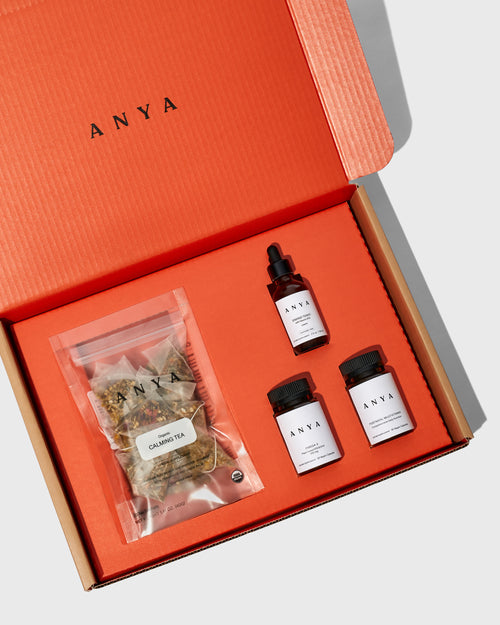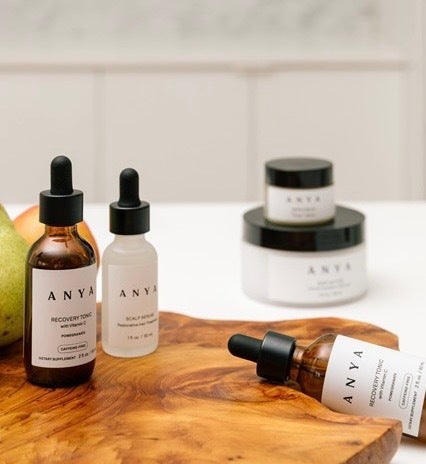Meet Dr. Julia Kearney, an obstetrician and gynecologist based in Indianapolis. Kearney is a calming voice for mothers who are struggling with breastfeeding and desperately looking for help. Rather than waiting six weeks to see her patients postpartum, Kearney schedules appointments as early as a week after birth. “These earlier checkups allow us to address wound healing and the medical element and also issues that come up around breastfeeding,” she says. Here, Kearney shares the breastfeeding concerns she hears most from her patients—as well as the advice and guidance she offers them.
“I’m worried that I’m not producing enough milk for my baby.”
This is something I hear as soon as the baby is born and when they come back to see us at the one- to two-week mark. When you first produce breast milk, it is colostrum, also called liquid gold. It is very nutrient-rich, and your body produces it in minimal amounts. A lot of my patients are surprised to know that a baby’s stomach is very small and holds only a millimeter or two of milk at a time, so you don’t need to produce the quantities you might be envisioning. Even the smallest formula bottle holds way more than a new baby can digest in one feeding. The supply you have at this point is not the supply you’ll have three months from now—the baby doesn’t need that yet.
“My baby is hungry all the time and I’m exhausted.”
The first week of the baby’s life requires a lot of feeding. Many mothers get exhausted and, understandably, frustrated. No matter how much help you have, no one can take your place if you’re a breastfeeding mother. You are the one holding your baby at 3 a.m. when you were just up at 2 a.m. I explain that responding to your baby’s feeding cues—not just crying but also looking for the nipple—is going to stimulate your body to produce more milk. The more the baby feeds, the more milk you are going to produce.
“I think my baby is cluster feeding.”
We generally advise mothers to pay attention to the cues of their babies—even if you find yourself feeding them as often as every hour. If the baby is cluster feeding, let the baby cluster feed. It tends to be an issue in the first couple of days, but the baby will eventually settle down, and you’ll start to get longer stretches in between feedings. As long as the baby is gaining weight appropriately—which the pediatrician will track closely—you do not need to worry about supplementation.
“Is breastfeeding supposed to hurt this much?”
We usually get this call before they even come in for the postpartum checkup. We give different problem-solving recommendations: Use a nipple balm or try different positions because sometimes a different hold with the baby can feel more comfortable. If those don’t work, I suggest a lactation consultant to check the baby’s latch. We also screen for mastitis or an underlying yeast infection, which can happen if you have cracks that don’t seem to be healing. The earlier you catch those issues, the better.

Anya Nipple Balm
“My body hasn’t recovered from the C-section.”
First, the use of pain medication, whether it’s oxycodone or ibuprofen, is completely appropriate if you’ve had major abdominal surgery, which a C-section is. The medication that is prescribed is completely safe to take—very little passes into the breast milk. I also remind mothers that partner support is helpful and necessary, as is creating a feeding area with water, snacks, and diapers so that you don’t have to move around more than you need to. Most of all, I encourage new mothers to have empathy for themselves. You are human. You have limitations. Healing may take longer than you expected, but that’s no reason to panic. Your body will heal. Treat yourself with kindness rather than trying to push yourself beyond your physical limitations, which can prolong the healing process.
“Will formula hurt my baby?”
There is no reason to be afraid to give formula, especially FDA-approved and trusted brands. They are all tested and safe. I understand there is a lot of pressure around “Breast is best” but know that there are millions of exclusively formula-fed babies who are smart, healthy, and thriving. And at the end of the day, the most important thing is that the baby is fed and growing.
“I had to agree to formula at the hospital and I feel like a failure.”
Just because you give a bottle or multiple bottles of formula in the hospital doesn’t mean you can’t breastfeed when you get home. You can do both. And you can tailor what you do to what your baby needs. If you want to switch exclusively to breastfeeding or exclusively to formula, those options are on the table. You can still stimulate milk production with a pump or manual expression. It’s all about giving your body the cues that say, “Okay, you need to produce milk for a baby.” So even if the first couple of days and weeks are not what you expected, it’s normal. It doesn’t mean you won’t breastfeed later.
“I’m going back to work soon. How can I continue breastfeeding?”
If you are going to be back at work, you are going to need to pump every couple of hours during the workday to keep up your milk supply. By law, employers in the United States have to provide you with a place to pump in privacy and breaks to do it. Does that always happen? No. Having access to a hospital-grade mechanical pump—whether you rent or buy one—is important so that even if you have only twenty or thirty minutes, you can empty your breasts efficiently. The new wearable pumps can also be an option for mothers returning to work.
But the hardest thing if you are going back to work quickly—and for some women, it can be as early as ten days after birth—is building up at least a day or two of pumped breast milk to keep in the fridge. This can be difficult when you are still establishing your milk supply. I suggest pumping at the end of every breastfeeding session. And if you have to supplement, don’t scold yourself. Mixed feeding is absolutely fine.
There is so much pressure to be a perfect mother, and a lot of the time it’s just so easy to feel that you aren’t meeting whatever goals you have set for yourself. On top of that, our society doesn’t give mothers the flexibility they need with regards to maternity leave. As long as your baby is eating, sleeping, and growing, you’re doing a great job.






